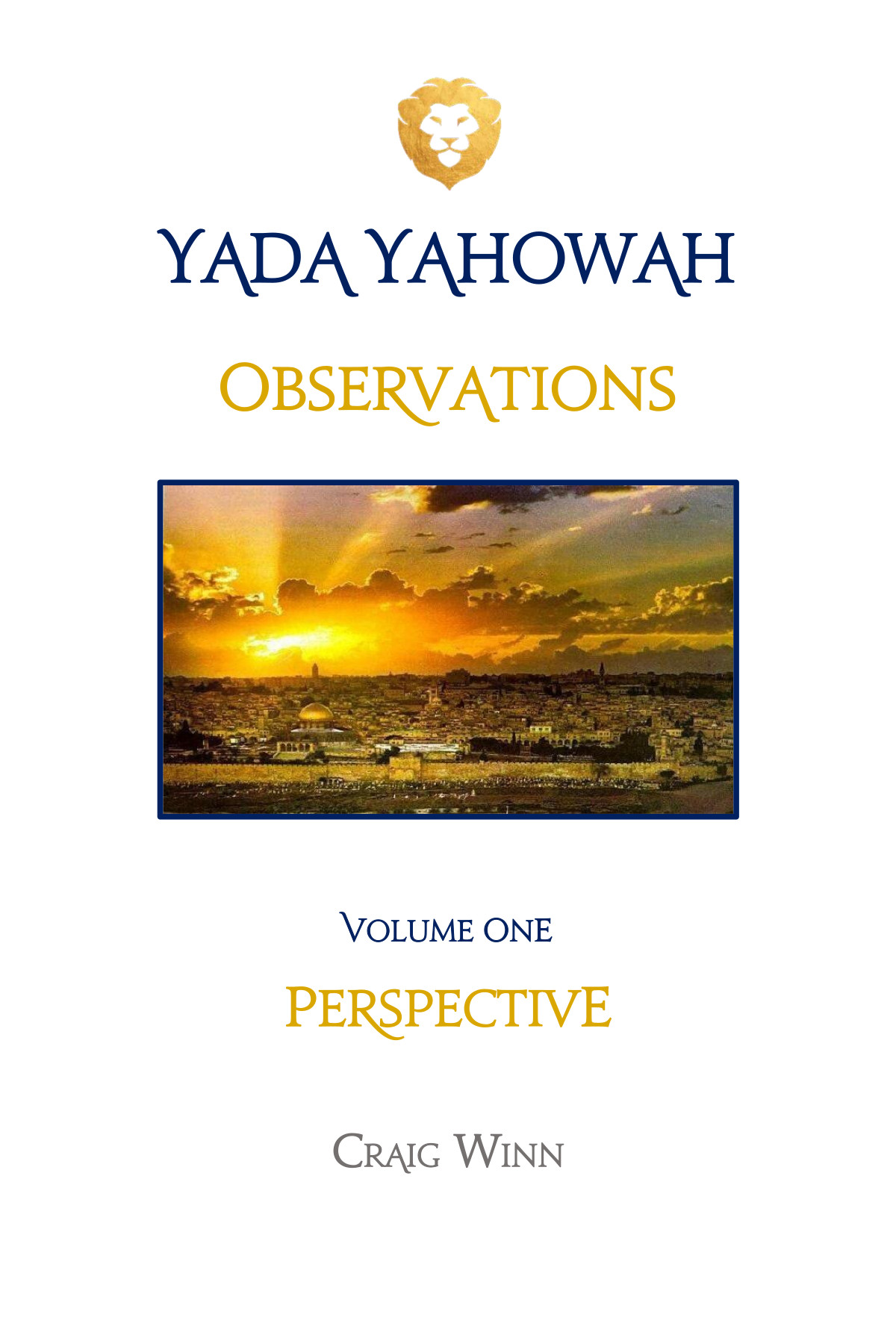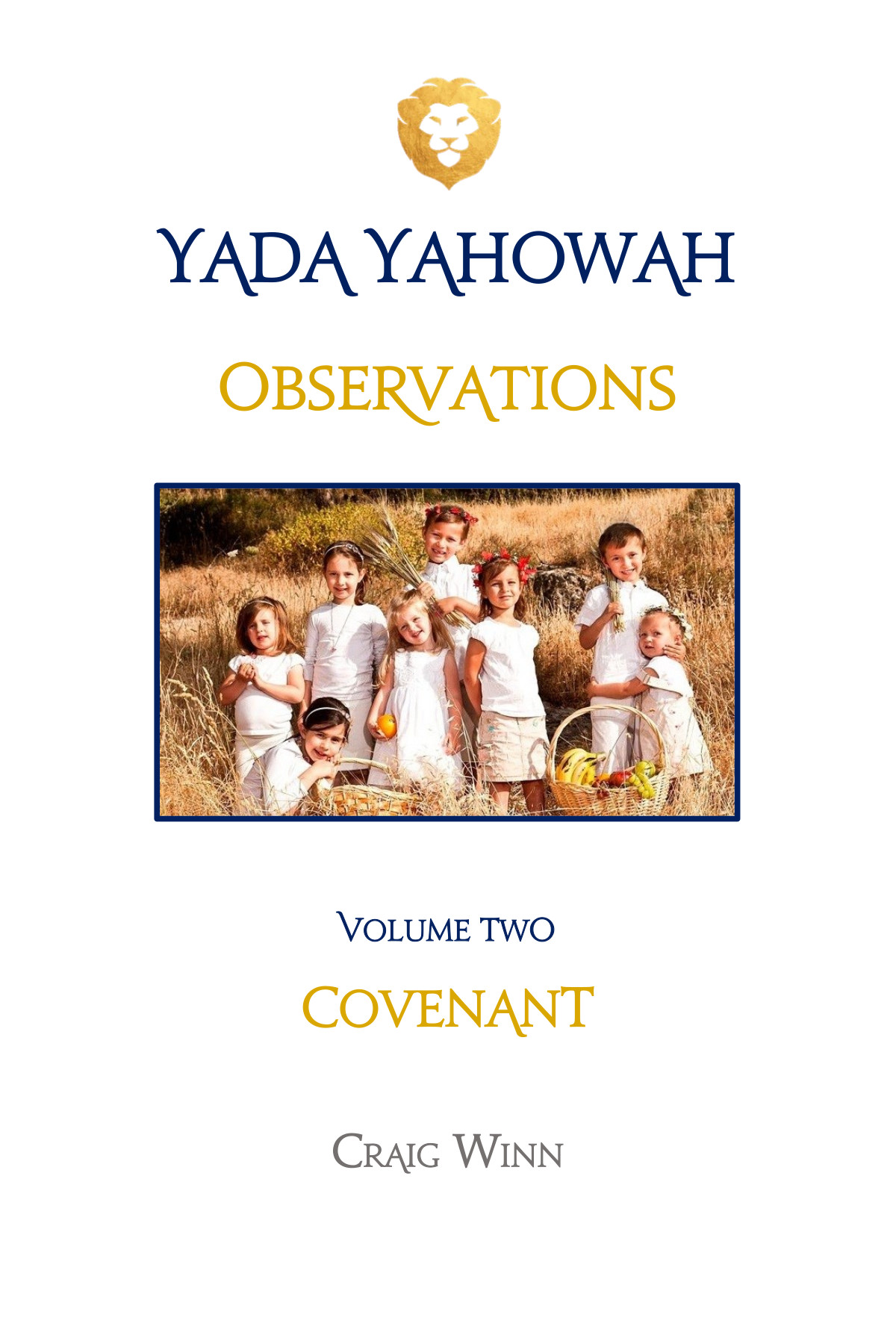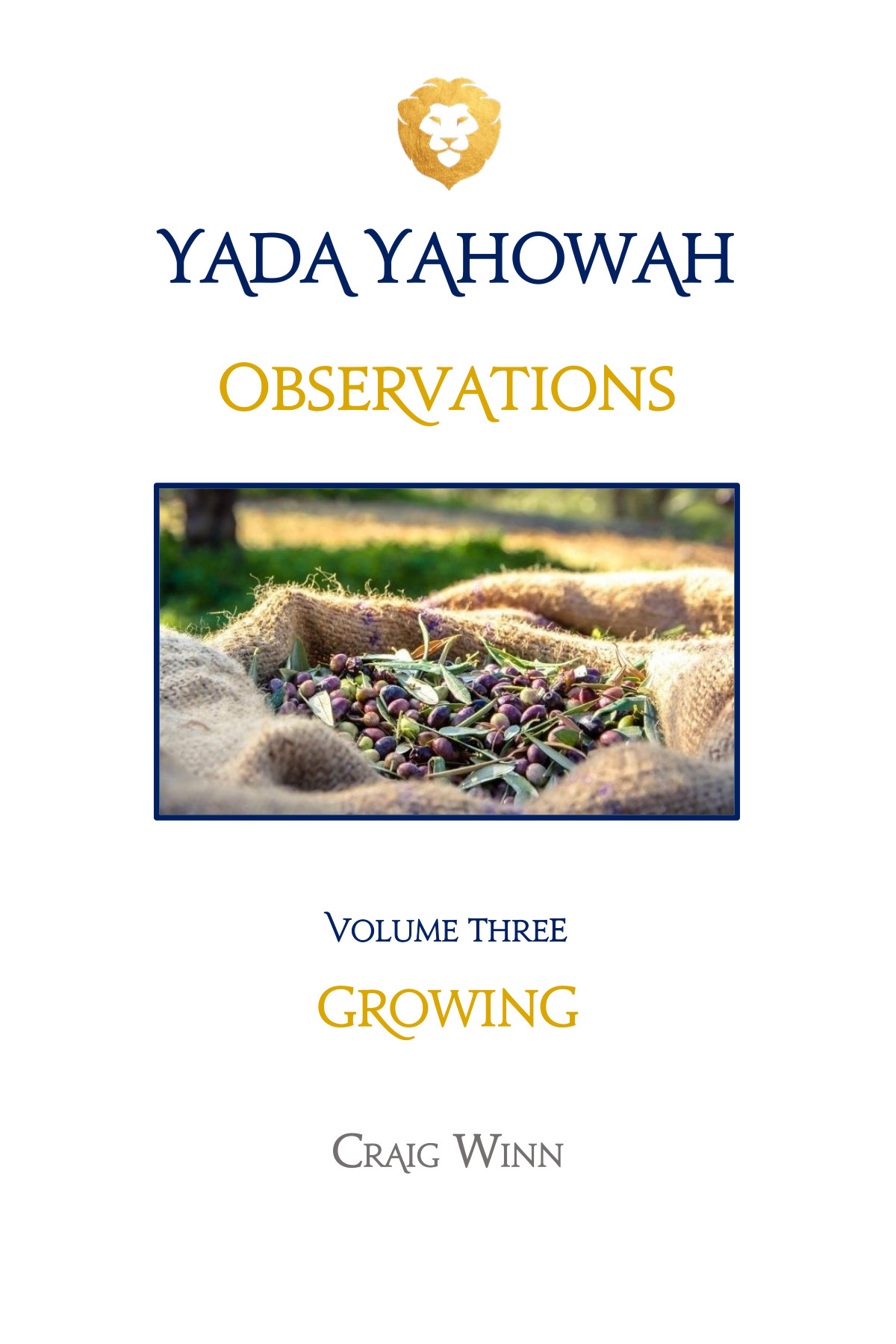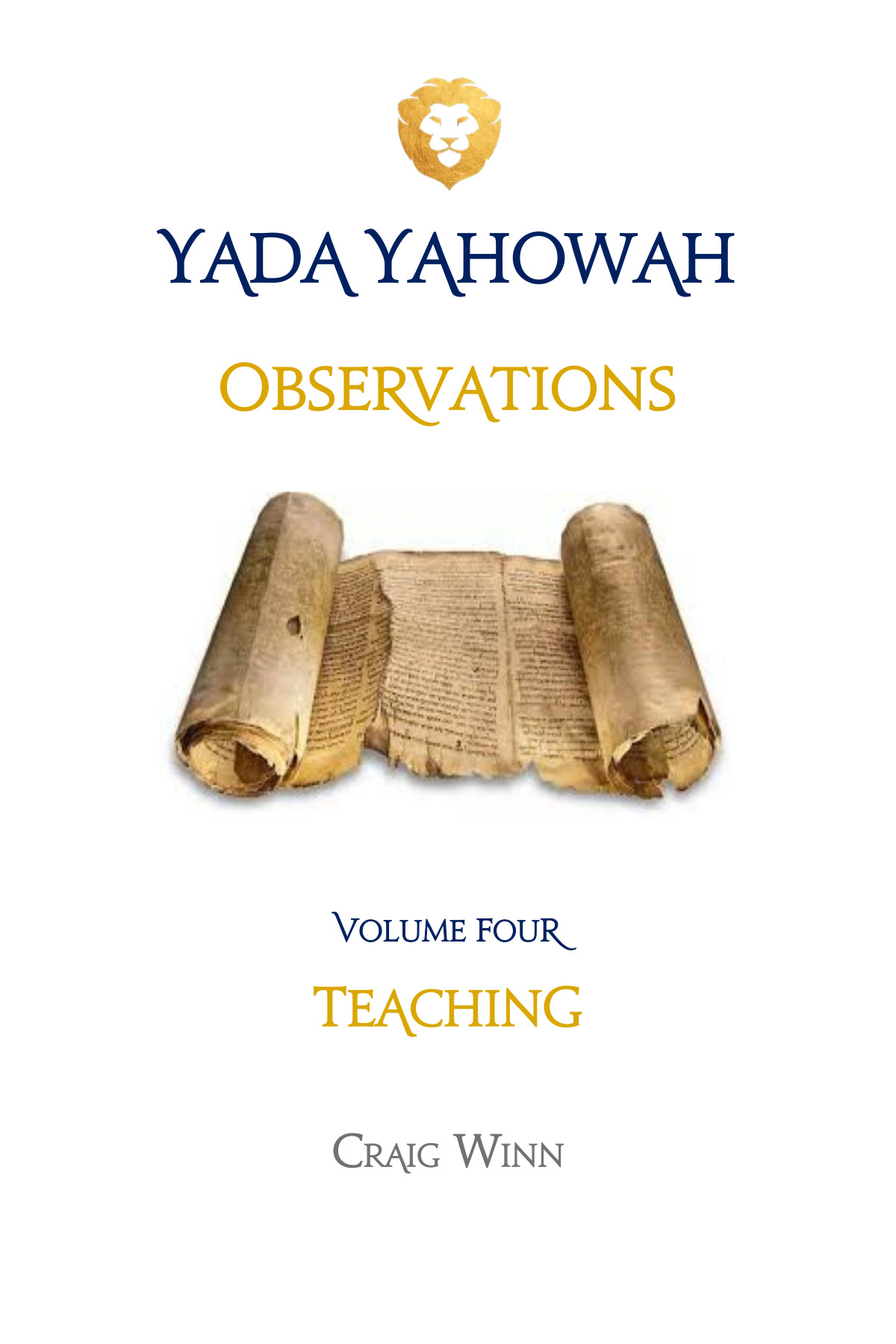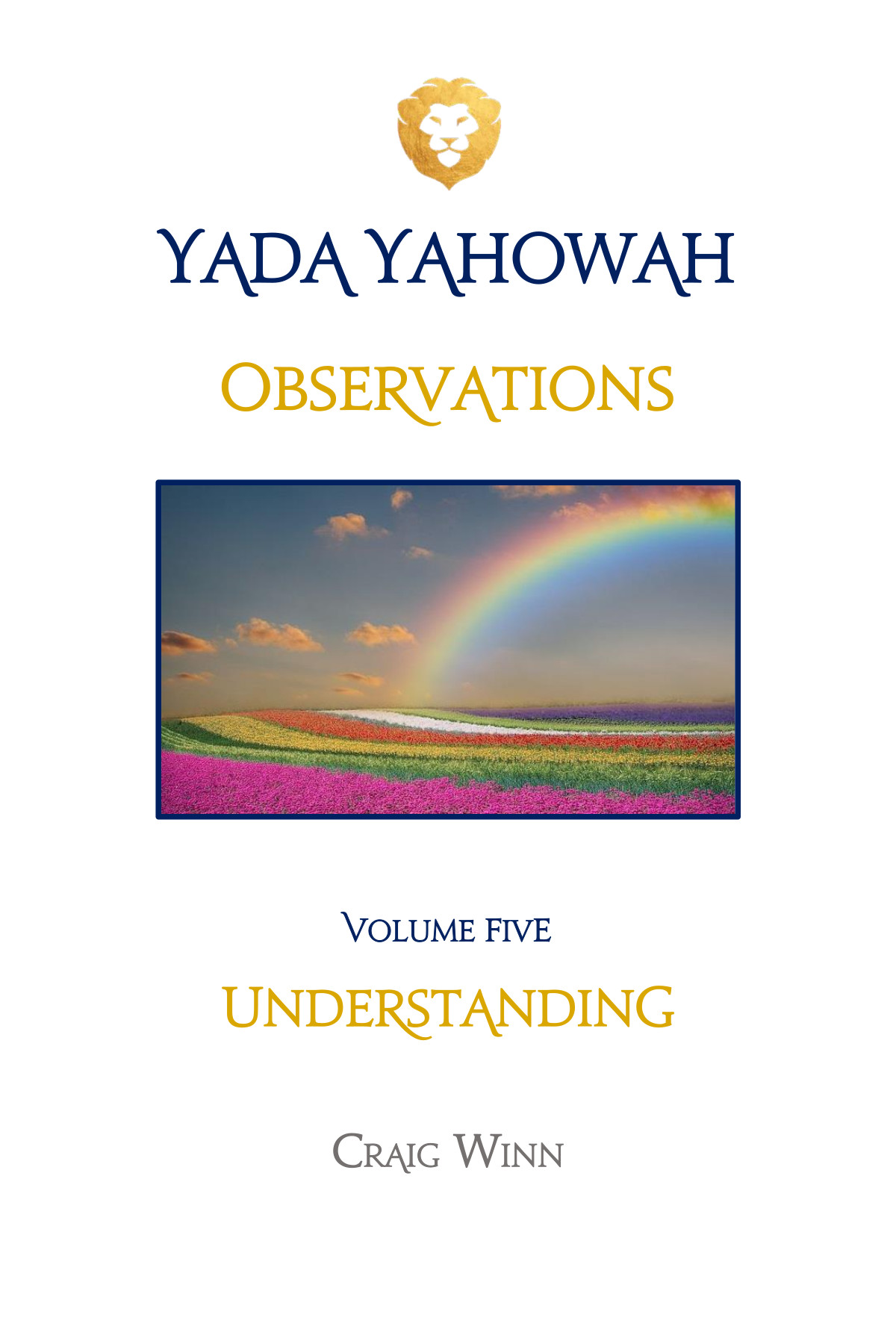Perspective
According to God, we are within a decade of the most hellacious period in history, a time when deception and death will be commonplace. By the Fall of 2033, it will be over. Time is in short supply, as is the truth regarding the choices before us. Opposed to every government, religion, and military, Yahowah forewarned and advised…
“‘My son (beny), if you have at some point given a pledge and joined in to be accepted (‘im ‘arab) in association with your immoral country or religion (la rea’), then you have bound yourself to (taqa’ la) that which is illegitimate and estranged from (ha zar) My hand (kaph ‘any). (6:1) You are enticing others into relinquishing their freedom and are yourself ensnared and controlled by (yaqas) your statements (ba ‘emer peh)… (6:2) So then, decide to engage thusly (‘asah zo’th ‘epow’), My child (beny), and of your own freewill elect to tear yourself away (wa natsal). For if you have come (ky bow’) to bow down before the influence (ba kaph) of your country or religion (rea’), choose to tread over this muck (halak raphas), pressing your reasons for contention with the adversarial individuals, showing courage by demonstrating your opposition to (wa rahab) your debilitating religion and dishonest country (rea’). (6:3)
My child (ben ‘any), choose to be saved by closely observing (natsar) the instructive terms of the relationship agreement (mitswah) of your Father (‘ab) and do not ever forgo (wa ‘al natash) the Towrah Guidance (towrah) of your Mother (‘em). (6:20)
Indeed (ky), the prescriptions and conditions of the relationship agreement (mitswah) are a lamp (nyr), and the Towrah’s Teaching (towrah) is Light (‘owr). They are the means (derek) to life (chayym) through rational discourse (towkachah) regarding accurate instruction and good judgment (muwsar).’” (Mashal / Word Pictures / Proverb 6:23)
Covenant
The Covenant began with Yahowah speaking and its beneficiary listening and responding. It is the most highly recommended approach…
“Yahowah (Yahowah – ) said to (‘amar ‘el) ‘Abram (‘Abram), ‘It is of your own freewill to approach by walking away from (halak la ‘atah min) your country (‘erets ‘atah), away from (wa min) your society and culture (mowledeth), and from (wa min) your father’s household (beyth ‘ab ‘atah) to the Land (el ha ‘erets) which bestows the blessings of the relationship that I will show you (‘asher ra’ah ‘atah).” (12:1)
“And so he completely trusted in and relied upon (wa ‘aman ba) Yahowah (Yahowah – ). Therefore, based upon this thinking, He credited it (wa chashab huw’) to him as being correct and thus vindicated (tsadaqah la huw’).” (15:6)
“Then (wa) Yahowah (Yahowah – ) was seen, appearing to (ra’ah ‘el) ‘Abram (‘Abram). He said to him (wa ‘amar ‘el huw’), ‘I Am God, Almighty (‘any ‘el shady). Choose of your own volition to walk by yourself (halak) towards My presence (la paneh ‘any). You will thereby (wa) enjoy becoming genuinely (hayah) perfect, right, and totally fulfilled (tamym) (17:1) such that (wa) I can choose to give (nathan) My Covenant (beryth ‘any) for the purpose of understanding by making connections between Me and you (bayn ‘any wa ‘atah wa byn ‘atah). In addition (wa), I will increase every aspect of your nature (rabah ‘eth ‘atah) to the greatest extent and highest degree possible (ba me’od me’od).” (17:2)
“So as for you (wa ‘atah ‘eth), you should closely examine and carefully consider (shamar ‘atah) My Covenant (beryth ‘any). In addition, so should your offspring you conceive (wa zera’ ‘atah) following you (‘achar ‘atah) so that they might approach throughout their generations (la dowrym hem).” (Bare’syth / In the Beginning / Genesis 17:9)
Growing
The Mashal are Word Pictures composed by Yahowah’s most beloved Son, Dowd | David. They contain parental advice from Yahowah as our Heavenly Father and the Ruwach Qodesh as our Spiritual Mother. What follows is the best advice ever given…
“You should choose to actually listen (shama’) children (ben) to the truthful teaching and correct instruction (muwsar) of the Father (‘ab). Then (wa) of your own volition, you should choose to pay attention (qashab) so as (la) to become familiar with, know, and acknowledge (yada’) what it means to understand, thereby, deducing the intended meaning from each revelation (bynah). (4:1)
For indeed (ky), good, beneficial, and valuable, enjoyable and productive, useful and appropriate (towb), teaching and instruction (laqach) I have given to you to facilitate your approach (nathan la ‘atah).
Therefore, you should not ever forsake, neglect, or reject (‘al ‘azab) My Towrah (Towrah ‘any – My Source of Teaching, Guidance, Direction, and Instruction; from tow – My signed, written, and enduring, towrah – way of treating you, tuwr – giving you the means to explore, to seek, to find, and to choose, yarah – the source from which My instruction, teaching, guidance, and direction is poured out to you, which tuwb – provides answers that facilitate your restoration and return, even your response to that which is towb – good, pleasing, beneficial, favorable, healing, and right, and that which makes you acceptable so you can endure, tohorah – purifying and cleansing you, towr – so as to provide you with an opportunity to change your thinking and direction).” (Mashal / Word Pictures / Proverb 4:2)
Teaching
Being right in the end is all that ultimately matters in the game of life. Neither money nor acclaim will turn on the lights when all around goes dark…
“A trustworthy and reliable (‘emuwn) witness (‘ed) does not intentionally communicate that which is false (lo’ kazab). And yet (wa) a misleading and deceptive (sheqer) witness (‘ed) pours out a torrent (puwach) of lies and delusions (kazab). (14:5)
A scoffer (lets) intermittingly seeks (baqash) expertise and erudition (chakmah) but there is none (wa ‘ayn), while (wa) understanding based upon knowledge (da’ath) is swift and easy (qalal) for the one who makes the proper connections (la byn). (14:6)
You should choose to walk away from (halak min) the presence of (neged la) an ignorant or irrational individual (kasyl la ‘ysh) because otherwise (wa) you will not come to know or appreciate Yada’s (bal yada’) understanding of the language or information and insights deduced from these words (saphah da’ath). (14:7)
The capacity to comprehend (chakmah) for the prudent and discerning (‘aruwm) comes by way of judiciously relating information to deduce a greater meaning when he embarks on this journey with his full attention (by derek huw’). However (wa), the foolishness of corrupt leadership (‘iweleth) defrauds and beguiles (mirmah) the ignorant and irrational (kasyl). (14:8)
Captivated by corrupt leadership, those incapable of thinking for themselves (‘ewyl) show no respect for (lyts) the atoning sacrifice (‘asham). Alternatively (wa), those who are right, on the level, and straightforward (yashar) observe the relationships between things and come to understand (bayn) the choices which lead to being approved and accepted (ratsown).” (Mashal / Word Pictures / Proverb 14:9)
Understanding
The Song of the Sea resonates today, just as it inspired those who sang it 3,500 years ago. The more we learn about what Yahowah has done in the past, the better prepared we will be for what will soon transpire. We are on the cusp of a second exodus. It is once again time to come home…
“Moseh (Moseh) and the Children of Yisra’el (wa beny Yisra’el) sang (shyr) this song to convey the motivations and intent (‘eth ha shyrah ha zowth) of Yahowah (). They expressed words (wa ‘amar) to profess (la ‘amar), ‘I will sing (shyr) to approach (la) Yahowah ()... (15:1)
Yah () is my source of strength and courage (‘oz ‘any), making me the best I can be by empowering and enriching me (wa zimrah). He has become (wa hayah) my deliverance and salvation (la ‘any la yashuw’ah). This (zeh) is my God (‘el ‘any). I will express that which is laudable regarding Him because I will dwell in His beautiful home (nawah huw’). My father’s (‘any ‘aby) God (‘elohym) will lift me up on high with Him and I will be raised by Him (wa ruwm huw’).” (15:2)
“Who (my) is comparable to (kamow) You (‘atah) among (ba) the gods (ha ‘elm) Yahowah ()? Who (my) is similar to You (kamow ‘atah)? Who is actually proven and admirable (‘adar), earning respect for being inspiring (yare’) in the set-apart and differentiating nature (ba ha qodesh) of these wonderful signs, these distinguishing insights into Your nature (pele’), engaging and acting in a way (‘asah) which deserves appreciation (tahilah)?” (15:11)
“With (ba) Your unfailing devotion, affection, and kindness, especially mercy (chesed ‘atah) for this family (‘am zuw), You have guided and escorted (nahal), delivering and redeeming them (ga’al) by (ba) Your tremendous power (‘oz ‘atah) on behalf of (‘el) Your Set-Apart (qodesh ‘atah) homeland (naweh).” (15:13) “Yahowah () will reign, providing advice (malak) through the eternal testimony forever (la ‘ed wa ‘ed).” (Shemowth / Names / Exodus 15:18)

